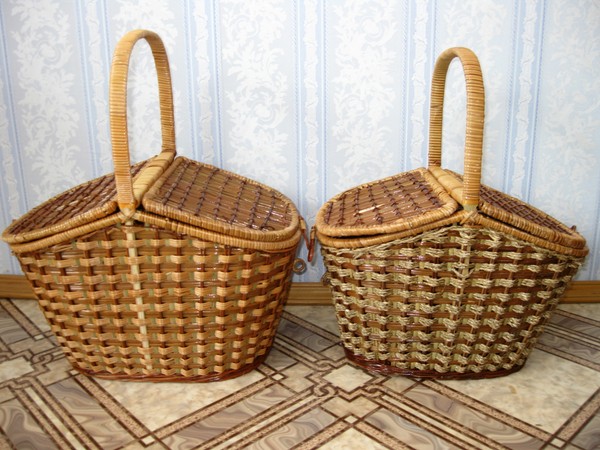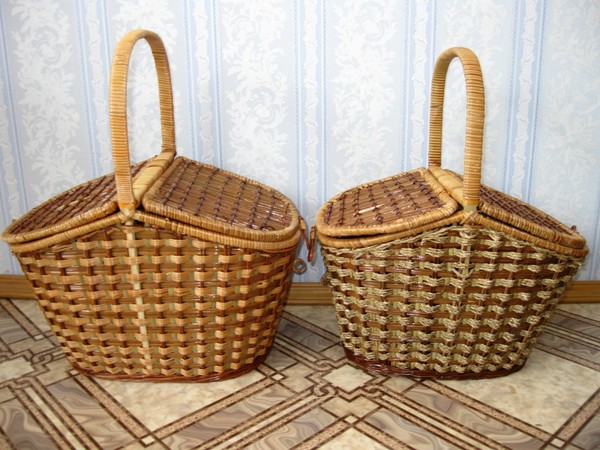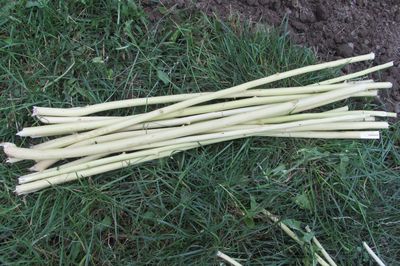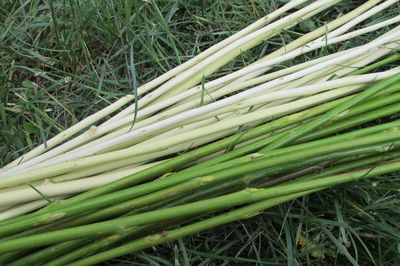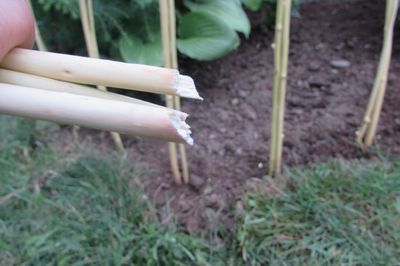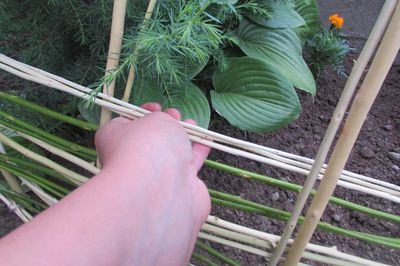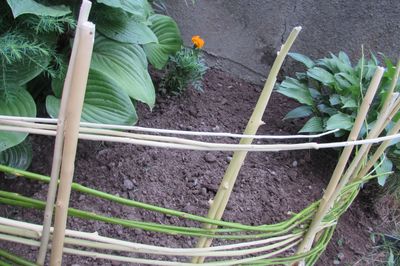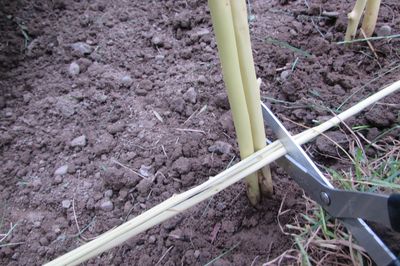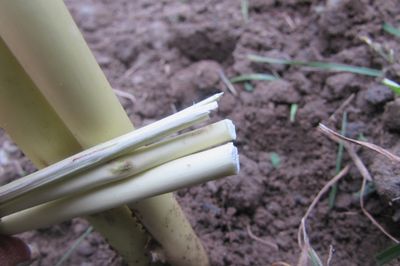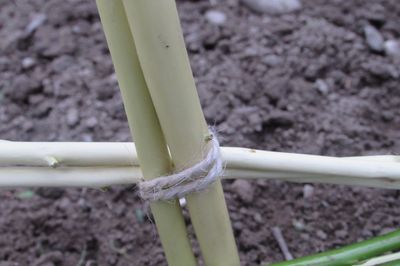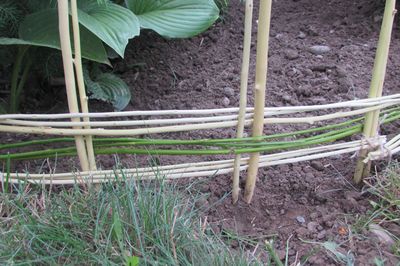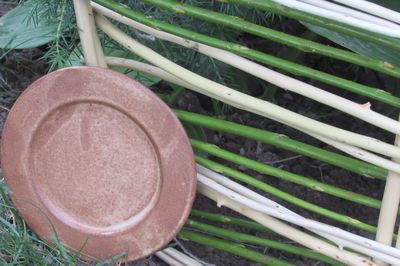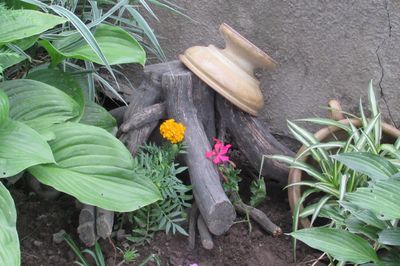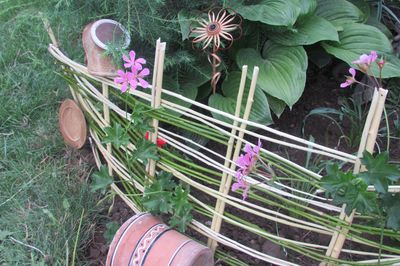A flower bed with our own hands made from improvised materials: a master class with photos and video. We make the flower bed ourselves
A beautiful flowerbed always revitalizes the garden, courtyard orcountry cottage area. And the process of creating a flower garden with their own hands will bring a lot of joy. It is advisable to make a flowerbed, which will not just be summer, but it will also be appropriate to look in the frame of the golden autumn foliage. Therefore, at today's master class we will create a flowerbed with a fence of vines.
A flower bed from improvised materials by our own hands: a master class
Preparation of tools and vines
According to the idea we will have a small flower bed of vines,therefore, we take the basis for the fencing. Prepare the same size is not very thick cleaned rods, which will stand upright, and on which holds the entire structure of the weave. Racks will stand two together, so the composition looks more beautiful.
For weaving, we picked up the bars of a thin vine, butyou can use any other that you have. To add color to the weave, we use two kinds of twigs: peeled and uncleaned. The result is a two-color fence, perfectly suited to green plants in the background.
For work, we also need the following tools: scissors, secateurs, thread, hammer, large nail, rake.
Preparing the support for weaving flower beds from the vine
Before you begin to weave the flowerbeds,it is necessary to calculate the number of racks and multiply them by two. Then, with the help of a large nail, or any other tool, it is necessary to make pits in the ground.
In each hole vertically insert two racks.
To our racks firmly held in the ground, you need to use a hammer to compact the earth around the posts.
Shaping support
With all the other risers, we do the same manipulations, only follow the line of our flowerbed. It should be smooth and, if possible, even, so that it is easier to manipulate the weave.
We begin to weave a fence out of the vine
To make the whole fence look beautiful, weavingyou must start from the bottom, gradually rising up. We chose an unusual weaving, the essence of which consists in alternating branches of the vine: three branches of the vine cleared + three branches of the vine in the skin.
At the first stage, you need to select three cleaned twigs and put them together.
Do not worry about the uneven tips of the vines, weat the end of the weaving carefully cut. The first three branches are tied with a rope to the first support of the flower bed. Do not hide the rope, it looks beautiful in this rustic etude from the vine.
Twigs spear alternating pillars of support: first on top of the vine, then inside, then again up and inside.
The ends of the rods are cut off after the last support and tied.
Alternating branches of vines in a fence
After three branches of the cleared vine we fix three branches not cleared. And we do the opposite: if the peeled branches were fastened on top of the support, then the unclean begins to weave from within.
Guide beauty or remove all unnecessary
When our weaving is ready, you can proceedthe stage of circumcision of all superfluous tips, twigs, threads. To do this, cut off all the protruding sections with a pruner or scissors, making the fence of our flower bed neat.
We write a village study from improvised materials
For the decor any suitable materials will fit,suitable for the chosen flower bed style. Since we have a flower bed in a rustic style, we use the decor as close to the subject as possible: a large stump, an "ancient" flower pot, a flower from a vine, and ceramics.
By adding a certain decorative element, you cancomplement it with green plants and flowers. Since we want the flowerbed from the vine to please us until late autumn, then we choose such flowers that will grow with time and will be beautifully fragrant until the frosts.
The flower bed is ready!
So our flower bed created by our own hands is readyfrom the vine. Its decor, flowers, a combination of vines and weaving gives an ancient rural style multiplied by modernity. This masterpiece looks very actual, fresh and colorful. To fix the composition you can use the usual colorless varnish and cover the vine in two layers. Then neither the bright summer sun, nor the autumn rains, can change the appearance of the weaving.




